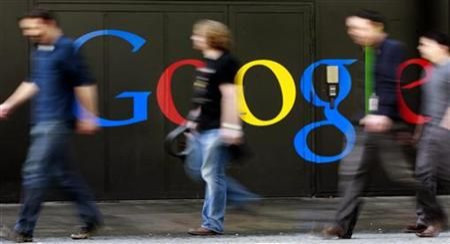Google Buys Motorola: The Best Defense is a Good Offense

In purchasing Motorola Mobility, Google has taken the mantra, "the best defense is a good offense" to a new level.
Yesterday, Google made a splash in the tech community by purchasing Motorola for $12.5 billion. With the purchase, the tech giant' has made its intentions well known. In a conference call, executives from the tech company flat-out said the move was made to protect Google from Apple, Microsoft and other players in the mobile industry.
In the words of Larry Page, chief executive of Google, the move was all about "protecting and accentuating the growth of Android."
Motorola Mobility has 17,000 patents and another 7,500 pending and could immediately level the playing field for Google in terms of patents. In the past, Google has struggled with patent issues against Microsoft, Apple and other tech firms. Recently, Apple and Microsoft teamed up to form a consortium of companies that bought thousands of patents from Novell and Nortell.
"On the surface, the acquisition of Motorola Mobility by Google looks like a game-changer where Google is seeking to become more vertically integrated like Apple, controlling the hardware, software, and services stack. However, upon further inspection and talking to industry contacts, our sense is that Google did this more as a defensive move to protect the Android ecosystem as partners HTC and Samsung have been losing in the courts to Apple and Microsoft and there is risk of a bigger loss by Android to Oracle over its use of Java," Shaw Wu, analyst with Sterne Agee, said in a note to investors.
The Motorola-Google team dates back to 2005, when Motorola CEO Sanjay Jha made a bet on Android as the sole platform its phones. Since then, other partners like Samsung and HTC have adopted the Android platform and found much success with it. Gartner's most recent numbers say Android is the most popular smartphone operating system in the world.
In the conference call, Google executives stressed that the deal would have no impact on other Android partners like HTC and Samsung. He said Motorola Mobility would operate as its own company and would gain no special advantages. Some analysts, like Kevin Burden, vice president and practice director at ABI Research, don't necessarily agree with that. He says the move may jeopardize Google's future with the other OEMs.
"Google has been relatively silent through the many legal problems its licensees have faced in defending Android. All its licensees are now feeling their legal positions have just been reloaded, but their allegiance to Android may be more at risk," Burden said.
Google's position, however, would further emphasize that the move was all about acquiring those patents. This is something seemingly everyone agrees upon.
"In our view, the deal was all about patents, and only Google could justify paying a large premium, due to its need to protect Android OEMs that comprise around 40 percent of the smartphone market," Stephen Patel, analyst at Gleacher & Co., said in a note to investors.
Although Wu says its worth watching Google to see if there is more vertical integration ala Apple with this latest move.
"There is a saying that imitation is the sincerest form of flattery and we believe Google's acquisition of Motorola Mobility is the latest sign of Google further trying to emulate Apple," Wu said.
Follow Gabriel Perna on Twitter at @GabrielSPerna
© Copyright IBTimes 2025. All rights reserved.





















